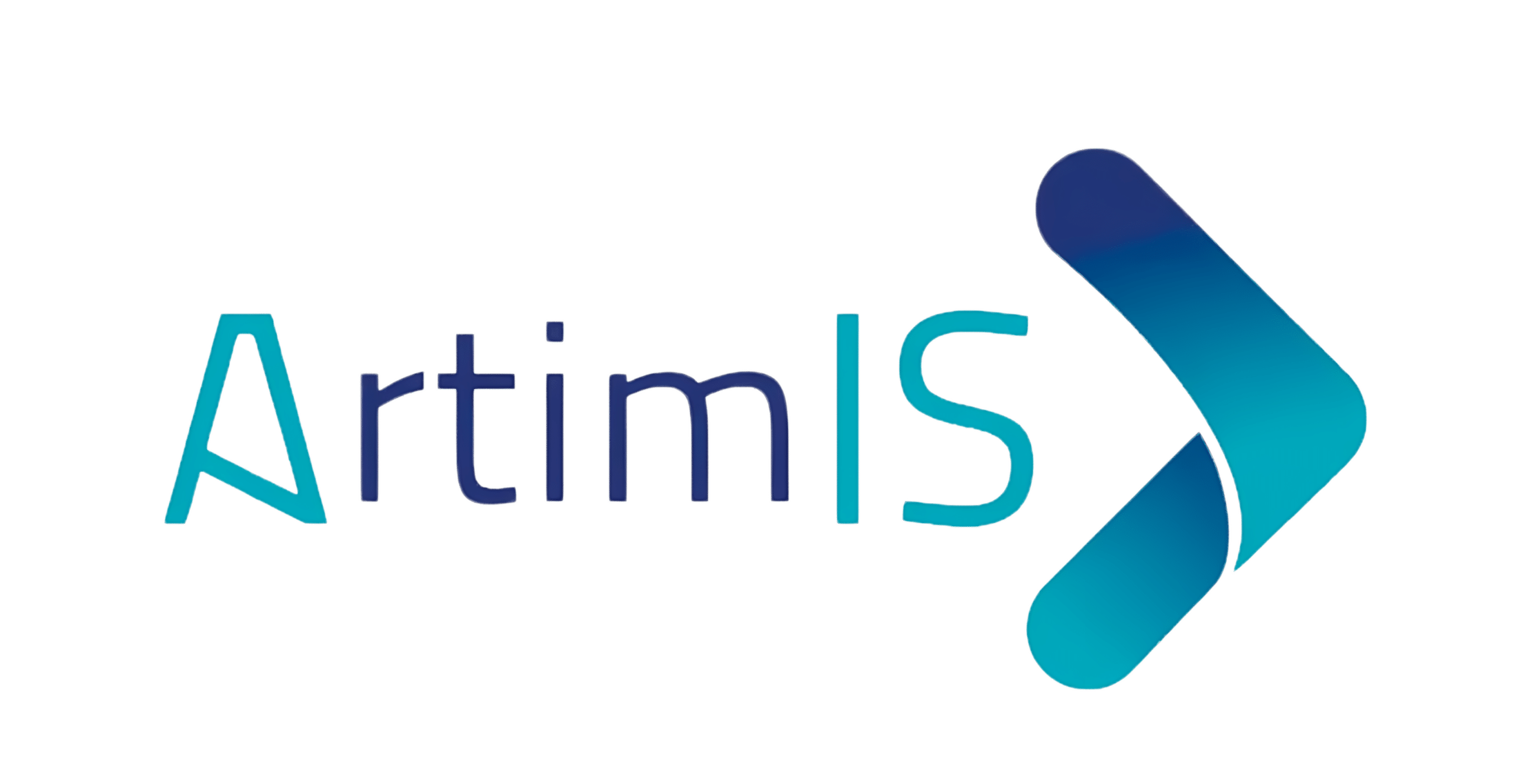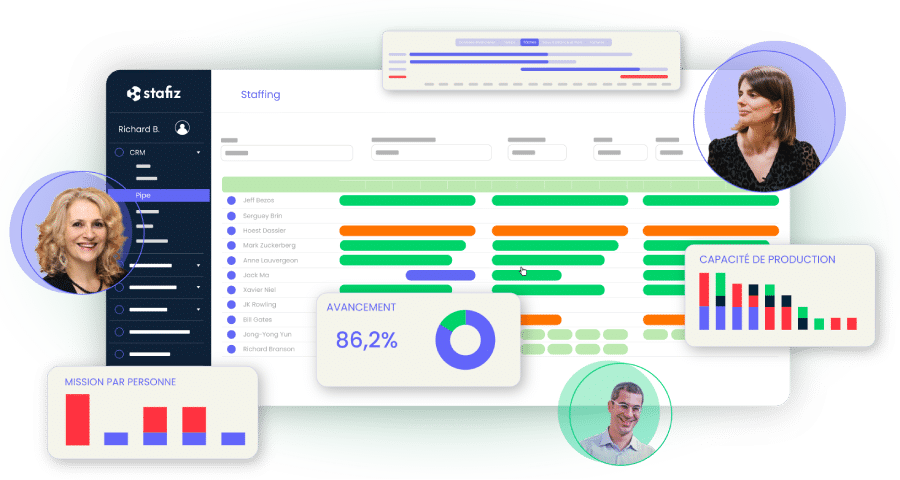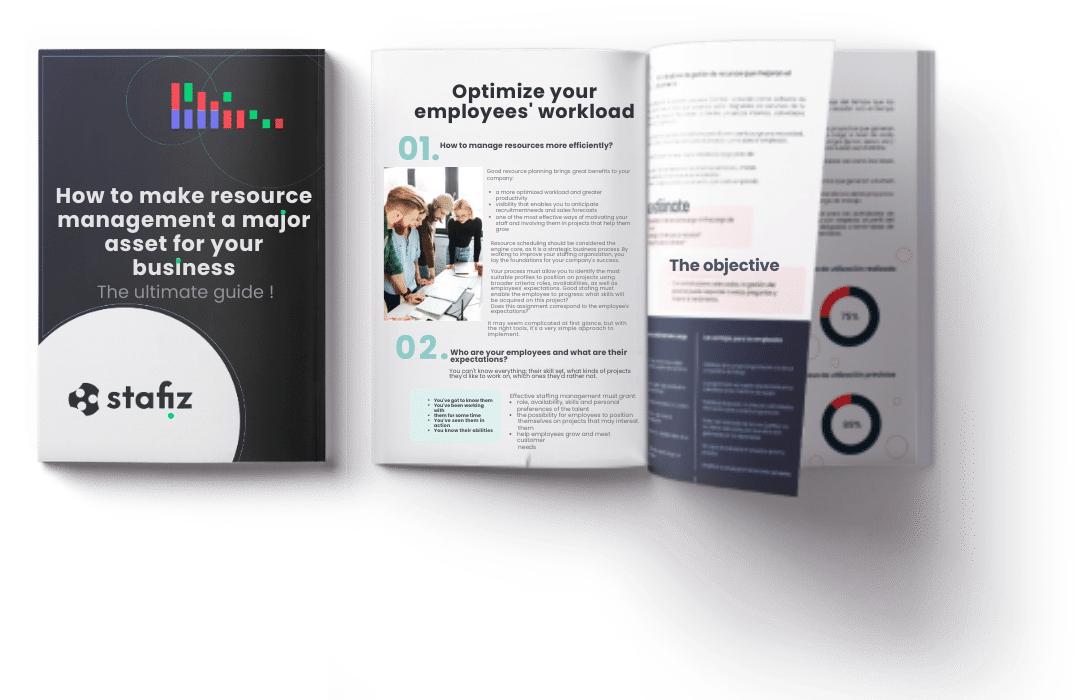Make your consulting teams more flexible – Post-Covid
Uncategorized
If this article had been written before the covid-19 crisis, it has had a major impact on the organization of work, and it is becoming more urgent than ever to react: the consulting companies that will win after the crisis are those that will be able to create a competitive advantage around the flexibility of their talents. Pessimists about flexibility and remote working of talent were forced to work this way during the lockdown and were able to realize that it works much better than they hoped. A return to normal, to "business-as-usual" is not an option when 73% of French employees hope to continue teleworking. How can this shift be turned into a competitive advantage that should allow you to work with the best talent and better position yourself in the face of competition from other consulting firms? Several major trends at work in the world make this transformation inevitable. This change is a real opportunity to work with the best talent in a more agile and economical way by creating your own platform of freelance consultants. However, you have to be well organized and equipped to make this advantage a reality quickly.
1) 4 major trends are pushing service and consulting companies to review their internal organization
When the planets align to send a message, it is difficult to close our eyes to such evidence. 4 major trends confirm that it is necessary for all companies and even more so for consulting and service companies to review their talent base and create more agile teams that make remote work a strength rather than a difficulty.
1a) The economy is increasingly volatile
The economy is increasingly volatile and less legible. Uncertainties about the extent of the crisis linked to the Coronavirus are very high. In France, the current situation is compared to the post-war period. The French recession is expected to be the strongest in the entire Eurozone, notably for structural reasons related to the management of unemployment. Many sorcerers' apprentices have been predicting a crisis since... 2015. Obviously a reversal of the cycle was to be expected, but who thought that a health crisis would bring the world to its knees? No one envisaged a more violent crisis than that of 2008, and yet... This volatility and lack of reading is not new, but the scale of crises and their speed to spread across the globe are new factors. In 2008, we thought we had lived through the crisis of the century, but 12 years later, it seems that the scale of the pandemic crisis will be even greater. Any company must take this volatility into account and adapt its model to be able to better absorb shocks. Bringing more flexibility to your teams by integrating external talent is the best possible approach.
1b) Talents increasingly want to work as freelancers
At the same time, a shift that is not new is accelerating: the scarcity of talent looking for permanent contracts. In the USA, more than 35% of the working population is already a freelancer. Before the pandemic, it was expected to rise to 50% by 2025. But the crisis seems to be accelerating this phenomenon even more. Cohorts of young talent laid off en masse by Airbnb, Uber and Lyft, when asked about their future, say they aspire to sell their skills independently and remain in control of their careers. This shift also continues to grow in France, which already has more than 15% of freelancers among the working population.
1c) Skills are evolving more and more rapidly
The transformation of professions driven by technology is drastically accelerating the evolution of skills. Consulting firms must be prepared for this, as they will be on the front line of meeting their clients' needs. According to a widespread estimate, 65% of children entering primary school today will work in a job that does not even exist when they leave school. In such a rapidly changing environment, putting skills planning and management at the heart of a consulting firm's strategy is paramount. But it's impossible to recruit talent that covers all skills, and working regularly with external talent is a great option to address this issue.
1d) Customers are demanding increasingly specific skills
Customers also have a more demanding approach than before when it comes to asking for specific skills to meet their problems. With a plethora of independent talent now at their fingertips, thanks in particular to the emergence of consulting platforms, it is becoming necessary for consulting firms to review their approach from the perspective of their teams. Many choose to bring their more generalist talent in-house as they create a pool of external or expert talent, ensuring that they always have the right resource to meet client needs while bringing in more advanced skills that drive project success and long-term growth for these consulting firms.
These trends existed before the crisis, but the crisis is only accelerating them. The rapid increase in short-time working confirms that bringing more flexibility to one's teams with a pool of external workers makes a lot of sense: 47% of new graduates say they want to work as a freelancer rather than look for a job in a company. The shock of the lockdown is accelerating the digitalisation of societies and the evolution of skills that accompanies it. This results in more specific needs in terms of expertise sought by the clients of consulting firms.
2) Many benefits of creating and working with an external talent pool for consulting firms
Consulting firms that embrace flexibility by mixing internal and external talent on their projects are better able to win over the competition. This requires the creation of an organizational structure that relies on in-house consultants who form the foundation and provide the skills most regularly required to respond to customer issues. This base of consultants must be complemented by a pool of expert freelancers who bring much more technical and specific skills. Skills that are less regularly in demand but which allow for better innovation to solve customer problems. Without ever competing with in-house consultants, these experts are called upon to collaborate with consultants when their expertise is relevant to a project.
Making your teams more flexible in this way, by mixing internal consultants and external talents, has many advantages:
2a) Innovate faster and better respond to customer problems
By having the ability to immediately source the expertise necessary to respond to a problem, the speed of innovation offered to consulting firms' clients is multiplied. Innovation is the main source of growth for a company. In a study, McKinsey analyzed the performance of 3000 companies to understand what causes a company to fail and disappear. The study shows that 92% of the companies that remained alive during this 32-year study had average growth rates of around 20% or more. This growth is largely created by the capacity for innovation that only companies with access to the right skills and expertise are able to deploy.
2b) Reduce risk and generate cost savings
Financially, this approach to creating hybrid teams has many advantages. First, working regularly with a base of independent external talent provides flexibility in resources that helps absorb growth shocks. The increasingly volatile economy requires identifying ways to reduce risk, and this approach is one of them. Especially since the massive use of short-time working and the long-term impact it will have on the country's debt could lead to reforms aimed at reducing companies' dependence on the government. In addition, in the event of a shock and redundancies, there may be significant restructuring costs. In a period of recovery, recruitment costs can also be high. The approach recommended here avoids both the risks associated with a lack of flexibility when activity drops sharply, and significantly reduces the costs associated with restructuring the organization.
2c) Better engage and retain talent
The creation of hybrid teams also allows you to focus your efforts on hiring and retaining the talent hired. By calling on external staff to support internal teams on certain tasks, it is easier to offer interesting and formative assignments to internal teams. To allow them to focus on higher value-added tasks in order to interest them more but also to increase their skills more quickly on key subjects, such as project management and customer management.
3) What are the steps to make your workforce flexible and create your pool of freelance consultants?
3a) Build a pool of experts
Moving from an internal workforce to hybrid and agile teams requires gradually creating a "pool" of external talent with whom your company will have privileged links, frequent exchanges and with whom you will work regularly on projects. Whether your pool has 10, 50, or 500 experts, it's important to build it as quickly as possible. Identifying these external talents has become very simple: whether on LinkedIn or on the various external consultant platforms, you will be able to find serious and qualified freelancers that you can test on one or more projects. Once you have confirmed the good performance of one of these external talents, integrate them into your pool, and make sure to solicit them as much as possible when their skills are needed to respond to a client's problem. Gradually, he will adapt better and better to your processes and working methods, will develop a better proximity with your internal teams and the performance of his work will only increase.
3b) Monitor and animate your community of external freelance talents
Once your pool of external talent has been created, you need to animate it, in order to continue to build relationships and make them want to prioritize your projects. Animating your community of freelancers is less complicated than it seems. The number one expectation of these talents is of course to have a sustained activity. Give them visibility into upcoming projects they might be working on. Some companies send out job boards by weekly newsletter, others do so with their resource management and management solutions, such as Stafiz. Once the project is complete, it is also important to evaluate the freelancers you work with. Tracking assessments in the resource planning thus confirms the alignment of the planned competences with reality. Finally, leading a community of external talents with whom you work regularly also requires bringing them together once or twice a year and mixing them with your internal teams. Some consulting firms invite their external talent pool to short seminars, during which they can meet with the firm's management and exchange with internal consultants. This proximity encourages the engagement of these external talents and pushes them to choose to work with these companies when it is necessary to arbitrate between several possible projects.
3c) Save money by automating management
While working with external talent has a lot of financial benefits thanks to the flexibility it offers, managing a pool of freelancers can create additional work for finance or even HR teams. Contract management, time and expense tracking, invoicing and payment: tracking the activity of external talent can quickly turn into an ordeal if you don't have the right tools. It is therefore necessary to equip yourself with a solution that allows you to manage both internal and external resources. The Stafiz ERP and schedule management solution allows, for example, to offer external talents, by workflow, to participate in projects, to automate the management of subcontractors' contracts, to manage time, planning and invoicing directly in the tool. The time saved and clarity that this brings generates significant savings since the time allocated to managing externals is considerably reduced. In addition, by "integrating" the management of your pool of externals, you avoid paying commission to freelance platforms which can range from 10% to 25% commission applied to Average Daily Rates, which can quickly become very expensive.
Conclusion:
In conclusion, the crisis caused by the pandemic will have accelerated an inevitable shift that requires the management of consulting firms to adopt a more flexible approach in their internal organization to be better equipped and better positioned for the future. Coupling a large base of internal consultants with its pool of external consultants appears to be an excellent model for creating solid competitive advantages.
This model seems so relevant that all the major consulting firms are adopting it.
The Big Four have already created their own internal platforms of freelance consultants: they can therefore draw much more easily from Data scientists, cloud architects, DevOps, Scrum masters, etc. skills that require specialisation. Last September, Deloitte launched Open Talent, PwC launched its PwC Talent Exchange platform and KPMG launched its KPMG's Freelance Portal. The trend is still timid in France, but much less so in Anglo-Saxon countries, which are more advanced on the subject. For example, Deloitte Australia works with 15% to 20% of freelancers on each of their projects. (read the Consultor article on the subject)
All consulting firms have a real interest in creating their own pool of external talent. Not to compete with their in-house consultants, but to always better respond to clients' problems and adopt the right shift towards the future of work. The flexibility, agility and financial gains that this brings is the icing on the cake!
An interview with the consulting firm Calyans
You might be interested in other articles

Optimizing Customer Relationship Management (CRM) with Stafiz: the case of Artimis
Natalia Duarte...

